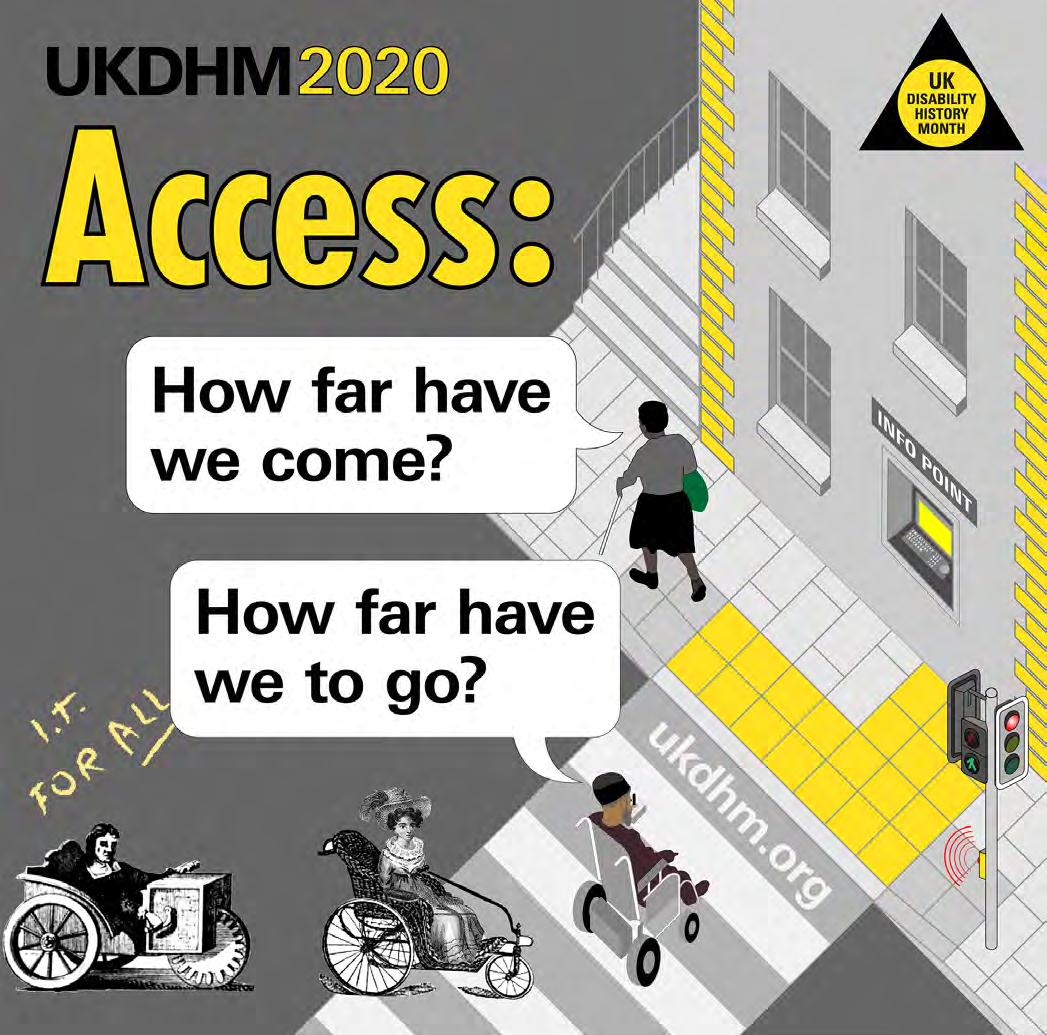
3 minute read
Disability History Month
from Inclusion Now 57
by ALLFIE
they take the extra resources offered and remain an expanded version of themselves. Experience shows the management and accountability measures need to be changed for this transition to be successful. It is much better if cross-impairment DPO Councils or coalitions, with parents, provide this support and advice drawing on the wealth of experience from their members to cover the full range of impairments. The IDA approach is likely to lead to separate silos, with some groups such as psychosocial left out, rather than full disability equality. IDA opposes any education setting that does not provide inclusive education in its broadest sense. IDA proposes that any other settings be phased out, with key human resources and knowledge assets converted – whenever possible – to support equal access and reasonable accommodation towards inclusion. However, sign language access for learners who are deaf and non-visual access to learners who are blind are both essential for meeting the right to education: this access cannot always be provided in local settings. Therefore they argue in h) a breach of the requirement for local provision in UNCRPD (24.2b), and b) Disabled people can access an inclusive, quality and free primary education and secondary education on an equal basis with others in the communities in which they live. Given the lack of funding this sounds remarkably like keeping segregation going into the foreseeable future for a minority and no education for many, as it is not inclusive enough.
Inclusive reading
If you like Inclusion Now, you may be interested in subscribing to ezines and blogs from Inclusive Solutions. https://inclusive-solutions.com/termlyinclusive-ezines/ https://inclusivesolutions.com/ category/blog/
UK Disability History Month 2020: Access.
“We need to make every single thing accessible to every single disabled person.” Stevie Wonder In our 11th year we are focusing on the theme of ‘Access’ and asking the questions: ‘How far have we come?’ and ‘How far have we got to go?’. UK Disability History Month runs from the online launch at 7pm 18th November, to Friday 18th December 2020. A fundamental human right now is for Disabled people to gain ‘access’ and participation on an equal level with others, regardless of our impairments. Disabled people have struggled for many years to adapt society’s lived physical and information environment. The first International Human Rights Treaty to explicitly include ‘accessibility’ as a principle was the UN Convention on the Rights of Persons with Disabilities (UNCRPD), 2008. There had been national laws, building codes and standards partially acknowledging the need for access in the previous 120 years. All of these were fought for by Disabled people, their organisations, and some non-disabled led charities. People with sensory impairments were in the vanguard, arguing for the teaching and use of Braille, Sign Language, and gaining concessions in a minority of mainly higher income countries. More recently, People with Learning Difficulties have fought for access to ordinary education. Direct Action Network (DAN) chained themselves to buses until the date for accessible transport was brought forward. Disabled people were seen as a problem to be cured and made ‘normal’, a ‘medical model’ approach. Now the barriers Disabled people with a multitude of impairments face, need resolving. This is the ‘social model / human rights’ approach. Schools can do the following:
1. Accessibility is at the core. Information Communication Technology has been much better at incorporating access and principles of universal design. 2. In all subjects and levels, pupils can study the struggles, the barriers and their solutions. 3. Pupils can map their school or local area/public transport, to identify barriers. 4. Pupils can work with teachers on lesson objectives and plans, to find what needs to change so all can access and benefit. 5. Local shops, offices, workshops and factories can be visited on-line or in person to identify barriers and solutions. 6. Pupils can then start local campaigns to rectify injustices they find. There are many more assembly, lesson and project ideas for different age groups with background and events information on www.ukdhm.org Richard Rieser Coordinator, UKDHM








